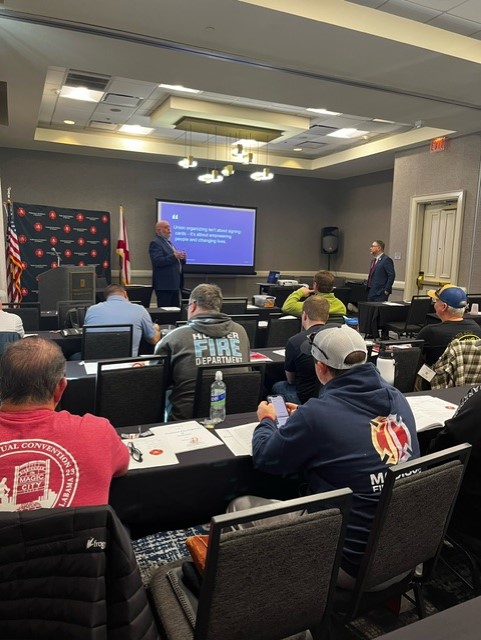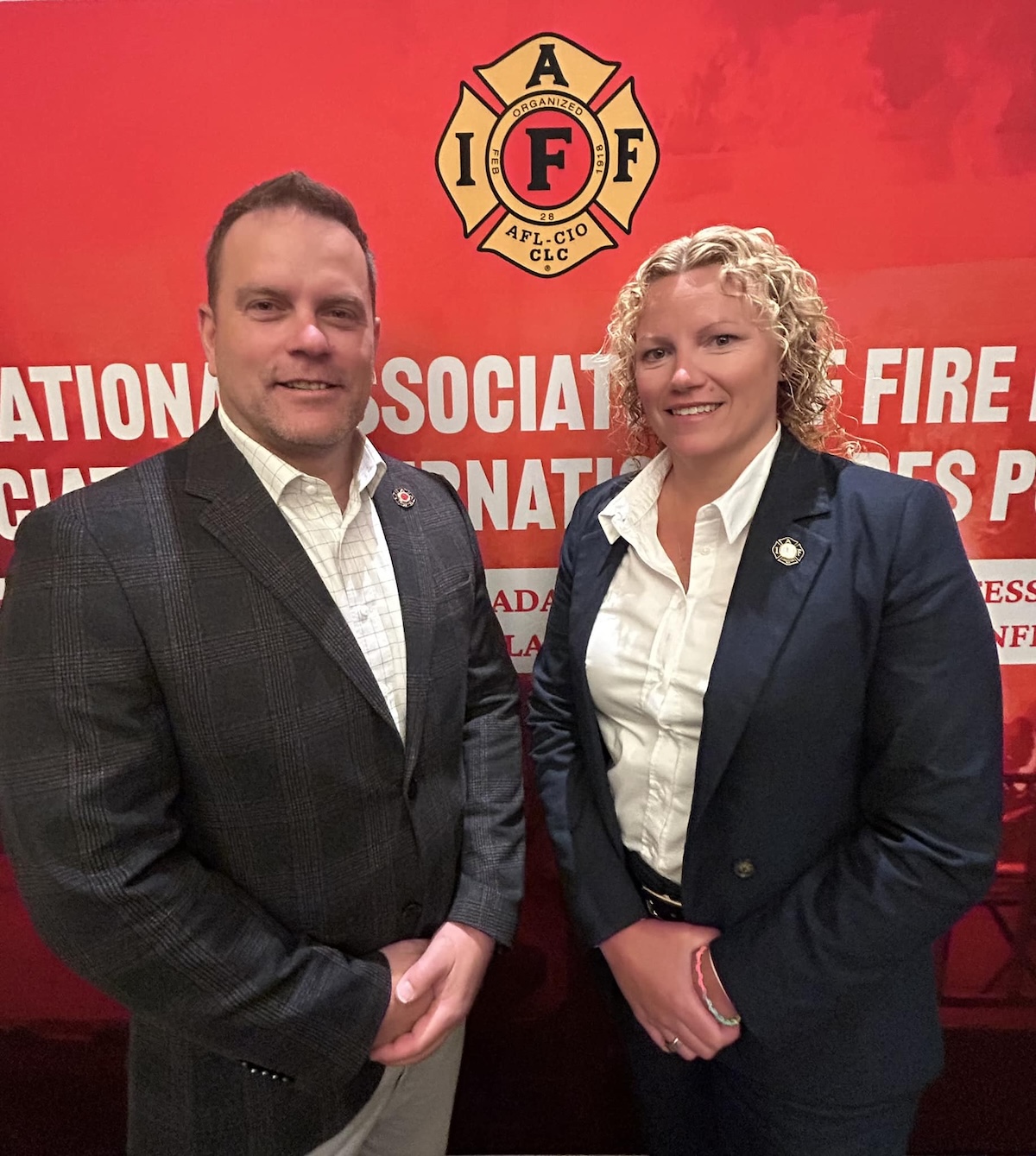Three dozen leaders from locals across Alabama attended a strategic workshop held by IAFF leadership earlier this month. The session focused on providing a playbook to strengthen local unions and establish collective bargaining rights.
“Increasing worker power is a full-time job,” said General President Edward Kelly. “This IAFF will show up whenever and wherever necessary – no matter the size of the local – to fight for a seat at the table when wages, benefits, and working conditions are being set. There is no other way to win.”
The four key objectives emphasized during the workshop were: growing overall membership by focusing on fire departments without 100 percent union participation; emphasizing the value of being in a union to the membership (especially new members); building political influence; and finding a path to collective bargaining.
“The 14th District is grateful to General President Edward Kelly for approving this workshop,” District Vice President Danny Todd said. “The IAFF team walked our members through the process of recruiting and how to establish collective bargaining in areas not traditionally friendly to unions.”
Todd continued, “Our members will take home the strategies learned in this workshop to increase the strength of their locals and plan for a path to bargaining.”
Feedback from the workshop was positive. Whether the member was new to the labor movement or was a seasoned veteran, everyone left with new ideas. Attendees also appreciated the opportunity to share stories about what was working and not working, especially with recruitment.
In Birmingham, Local 117 has doubled its membership size to 430 over the past couple of years.
“We had an issue with some members feeling like they were unfairly being passed over for promotion. Taking the proactive approach, we held classes which provided members with the steps they needed to take to ensure they were not passed over,” Local 117 President Stephen Cook said. “Fire fighters who were not yet members were able to see the value in union membership. That’s when we started to see a rise.”
Alabama is one of eight states (not reinforced by state statute) that allows local governments to offer collective bargaining.
This is where political power comes into play. To get collective bargaining, IAFF affiliates must help elect local government officials who are open to unions and negotiating contracts.
This is very important for affiliates like Huntsville Local 1833 who know exactly what it’s like to navigate union issues without collective bargaining. Had it been in place, a recent pay scale disparity issue would have been handled and resolved during that process.
Instead, the local spent months meticulously sifting through all department employees’ pay to determine the full scope of the problem and found 186 pay inequities that had to be fixed.
“This victory underscores a poignant truth. Fire fighters should have a seat at the table when policies are being developed to mitigate potential issues on the front end, so months or even years aren’t spent fixing problems on the back end,” Local 1833 President Hunter Robinson said.
The IAFF remains committed to passing national legislation to allow collective bargaining nationwide. But until that day comes, the International hopes to build off the recent successes in several states.
Recently in Georgia, South Fulton Local 3920 negotiated its second collective bargaining agreement. And, in Virginia, several municipalities now have collective bargaining after a law passed making the right available through local government ordinances. Several Mississippi locals have negotiated MOUs. Finally, in Louisiana, it is up to the local government to decide to enter into collective bargaining agreements which has benefited some IAFF locals.



